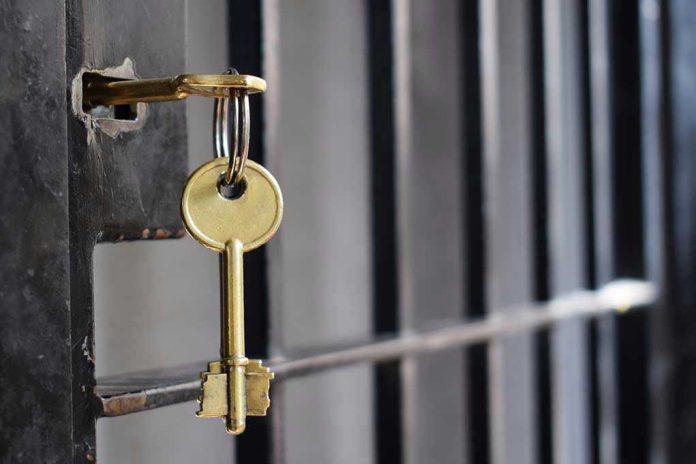
Why does Ghislaine Maxwell seem to be living a life of relative luxury behind bars?
Story Overview
- Maxwell reportedly receives preferential treatment in prison.
- Concerns arise about fairness and justice system transparency.
- Media scrutiny intensifies due to Maxwell’s high-profile status.
- Potential implications for prison management and policy reform.
Preferential Treatment in Prison
Reports from FCI Tallahassee suggest that Ghislaine Maxwell, convicted for her involvement in Jeffrey Epstein’s sex trafficking ring, enjoys privileges not typical for inmates. Sources inside the prison claim she has access to private recreation, special food, and increased family contact. This alleged preferential treatment raises questions about the fairness of the prison system, especially when considering the notorious nature of her crimes and the public’s interest in ensuring justice.
Media reports have drawn comparisons to previous cases involving high-profile inmates, such as Martha Stewart and Lori Loughlin, who faced similar allegations of special treatment. The scrutiny on Maxwell’s conditions highlights the ongoing debate about whether celebrity status influences prison life, and if such treatment undermines the integrity of the justice system.
High-Profile Status and Its Influence
Maxwell’s notoriety puts her in a unique position within the prison system. The Federal Bureau of Prisons (BOP) often justifies special measures for high-profile inmates as necessary for security and order. However, these measures can appear as favoritism, prompting public outcry and demands for transparency. The media’s role in spotlighting Maxwell’s situation pressures prison officials to justify their actions and maintain public trust.
The influence of Maxwell’s status extends to the prison staff responsible for her day-to-day management. They must balance security concerns with the perception of fairness, a challenging task given the intense media scrutiny and potential backlash from both the public and advocacy groups.
Implications for Justice and Prison Management
The controversy surrounding Maxwell’s prison conditions has significant implications for the justice system. Short-term, it fuels public calls for an investigation into FCI Tallahassee’s management practices. Long-term, it may drive policy changes regarding the handling of high-profile inmates, pushing for increased oversight and transparency.
The BOP faces a reputational risk as the spotlight on Maxwell’s treatment highlights potential systemic issues within the prison system. If not addressed, the perception of inequality could erode public trust in the justice system, leading to broader calls for reform and accountability.
Expert Opinions and Perspectives
Prison reform advocates argue that security concerns should not lead to perceived preferential treatment, as it undermines justice. Some experts believe special measures are necessary for notorious inmates, while others see it as evidence of systemic inequality. Criminologists emphasize the need for transparency to maintain public trust, suggesting that while some privileges may be justified, they must be clearly communicated and understood by the public.
The Tallahassee Democrat’s reporting, based on interviews with current and former prison staff, provides a credible account of Maxwell’s privileges. However, the lack of independent documentation means these claims should be interpreted cautiously. The gap between official BOP statements and insider reports highlights the need for further investigation and clear communication from prison authorities.









